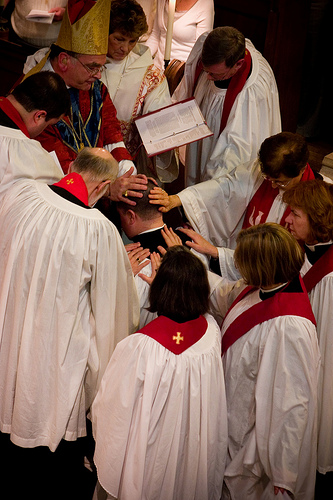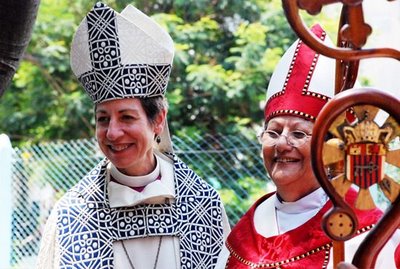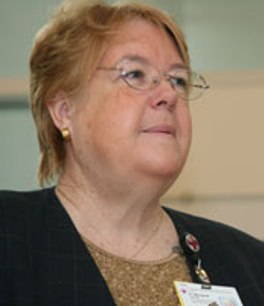A new program by the Archdiocese of Hartford to provide a spiritual support system to assist men and women with same-sex attractions to live chaste lives has drawn criticism from the gay community who say it can do more harm than good.
 The new program called Courage, which has chapters around the world, does not condone physical sex between same-sex partners. But it creates a “spiritual support system which would assist men and women with same-sex attractions in living chaste lives in fellowship, truth and love,” according to the Courage website.
The new program called Courage, which has chapters around the world, does not condone physical sex between same-sex partners. But it creates a “spiritual support system which would assist men and women with same-sex attractions in living chaste lives in fellowship, truth and love,” according to the Courage website.
“We really needed to do something because a lot of people are hurting, because families are torn apart by this, and we really need to be responsive,” said Deacon Robert Pallotti, who operates the Courage program in Connecticut.
“We do have a pastoral responsibility to do all we can to make people feel welcome in the church.”
Catholic pro-gay groups generally had a negative reaction to Courage.
“Courage does not want to convert you to become heterosexual, so in some ways, it’s a little more enlightened that the other programs that the Catholic Church has had for gays,” said Phil Attey, executive director of the national group, Catholics for Equality. “But at its core it’s still rooted in dangerous, harmful and barbaric thinking. The idea that you can suppress someone’s sexuality and still have that person develop into a happy, well-adjusted person, well, there’s very little evidence that that’s possible.”
Attey, however, said the church’s stance on gays isn’t pushing him out of his faith.
“Most non-Catholics don’t understand the Catholic experience, which is very much rooted in family and community,” Attey said. “It’s not unlike someone who is a Jew. He might not attend his synagogue, but that doesn’t make him any less Jewish. We will always be Catholic, regardless of what comes out of our hierarchy.”
Attey said that most rank-and-file Catholics, in fact, support the gay community, and because of this, gays feel comfortable in the church.
“American Catholics are the most supportive faith group in the country on LGBT (lesbian, gay, bisexual and transgender) issues. That may come as some as a surprise to a lot of people, given the harsh statements from the hierarchy, but if you look at the people and the `body church,’ it’s the most pro-gay church in the country.”
Marianne Duddy-Burke of the Dignity USA agrees. Dignity USA is the nation’s largest advocacy group for LGBT Catholics.
“You really have to differentiate between Catholics and the church hierarchy,” she said. “Even the Catholics who go to church every single week are more supportive toward gays than the population as a whole.”
She said that this might spring from the Church’s demands for the humane treatment of a host of other groups that have often go neglected and even hated — prisoners, the sick, the poor, men on death row, and so forth.
“Catholics are more supportive of gays than any other denomination according to the Public Region Research Group, and that surprises a lot of people,” she said.
As for the future, Attey said he doesn’t expect the Vatican to change its posture on gays anytime soon.
“We don’t expect any dogmatic change on LGBT issues anytime soon, but what we do expect is that more and more Catholics will be speaking out on their own on LGBT rights,” Attey said.
“This is a place where the leaders have to catch up with the truth that Catholics are living out every single day in their families and in the workplace,” said Duddy-Burke.
Pallotti said not all of the hierarchy in the archdiocese was on board with Courage from the outset.
“Many of them were fine with this, but we wanted to educate those deacons who had a reluctance to get involved or had some resistance, and many were dealing with their own personal feelings on this,” Pallotti said.
He said that Courage is sanctioned by the Vatican as the “only approved approach.”
The Rev. Paul Check of St. Mary’s Church in Norwalk, who runs the Courage meetings, explained that Courage “addresses homosexuality as a lived reality in the lives of individual people.”
Check said that “there’s no doubt” of the difficulty of the church’s teaching on homosexuality.
“But we have a way for people to live this teaching, and that’s where Courage comes in,” Check said. “Really, as a matter of natural justice and pastoral charity, we have to have a way for people to live that teaching. It’s difficult and challenging, but it helps people with this particular struggle.”
The roots of the Connecticut Courage chapter grew in the gay marriage debate in the state, Pallotti said.
“I was very fearful of the emotional backlash that was I was witnessing in Connecticut during the gay marriage debate,” Pallotti said. “So I went to the archbishop and I said, `OK, yeah, this is our position (to oppose gay marriage), but I’m concerned about people who are whipping up hate against gays as if they have the Plague or something — and some Christian churches were doing that. We had to confront this head-on.”
The Connecticut Courage chapter will meet twice a month “somewhere in Greater Hartford,” he said, and the exact location will be disclosed only to those who plan to participate. If there’s sufficient interest, other chapters might be set up in the state.
Complete Article HERE!




